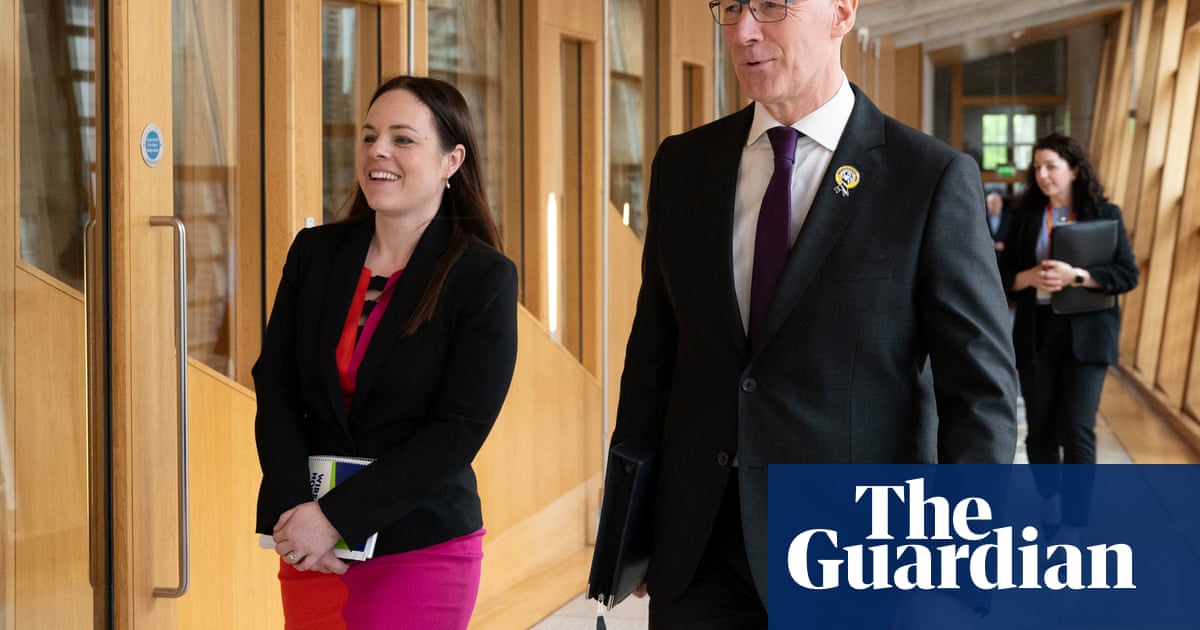World
Kate Forbes elected Scotland deputy first minister despite Green opposition

The Scottish Greens have voted against Kate Forbes becoming Scotland’s new deputy first minister in a fresh row over her conservative views on equality.
Ross Greer, a Scottish Green MSP, said that as a gay Christian he was unable to support a minister “who feels there is something wrong with us” and said all seven Green MSPs would oppose her appointment.
During the vote on John Swinney’s cabinet nominations, the Greens were joined by Labour and the Conservatives in opposing her appointment. The Liberal Democrats abstained, giving Swinney a narrow majority because some opposition MSPs were absent.
The dispute opens up a fresh rift between the Scottish government’s former coalition partners and the first minister, Swinney, the day after he confirmed Forbes would be his deputy and also deleted the post of minister for independence.
Swinney appointed Forbes partly in return for her dropping her bid to stand against him for the Scottish National party’s leadership, but chiefly to signal to disenchanted voters the SNP was shifting back to the political centre ground before the general election.
The row over Forbes’s conservative evangelical beliefs, based on Free Church of Scotland teachings, erupted at first minister’s questions. Patrick Harvie, the Scottish Greens’ co-leader, said her appointment signalled a return “to the repressive values of the 1950s”.
Swinney rejected Harvie’s criticisms. He said Forbes had presided over progressive tax changes and the introduction of the Scottish child payment while finance secretary. The first minister, who like Greer is a member of the Church of Scotland, said he took Harvie’s challenges “very seriously”.
“When I say that I want to be the first minister for everyone in Scotland, I deeply mean that,” Swinney added. “I want to lead a modern, dynamic and diverse Scotland, a place for everybody. Where everybody feels at home, at peace, that they have a place and that their place in our society is protected by my leadership of this country.”
Greer dismissed those reassurances. He said that he, Forbes and Swinney all believed in Christ, and that he knew Swinney “shares in the joy” that LGBT people felt about Scotland’s equal marriage reforms.
“Faith is not the issue here,” he added. “The issue is that I am being asked to vote for someone who thinks there is something wrong with me, not because of any views I hold but simply because of who I am.
“Yesterday Kate Forbes was given the opportunity to reassure LGBT people in a question asked by ITV News. She did not. The first minister had to step in just to say the word LGBT.”
Greer added that over the last few years it felt as if Scotland “was going backwards” on LGBT rights. It was a reference to the bitter disputes over gender recognition and transgender rights, which Swinney’s advisers believe have lost them centre-ground voters.
The Greens claim the former first minister Humza Yousaf’s disastrous decision to scrap the Bute House agreement between the SNP and the Greens which precipitated his resignation, and Forbes’s re-emergence in government, has led SNP members to defect to the Greens.
Harvie’s co-leader, Lorna Slater, told BBC Radio Scotland her party was experiencing a “surge” in membership, “particularly people in the LGBTQ+ community [who] are now looking at the SNP and thinking: ‘Oh my goodness, is this really the home for me?’”
Alyn Smith, an SNP MP who has championed gay equality within his party, defended the principle of Forbes’s appointment. “Scotland’s a big tent but we’re too small a community to exclude people, and people of faith should have a role in politics,” he told the same programme.
Forbes’s position on equality issues was “a matter for her to work through her conscience”, he said.
Later on Thursday, Out for Indy – the SNP’s affiliate group for LGBTQ+ members – issued a statement asking for “urgent clarification” from Swinney and Forbes that policies such as the forthcoming ban on conversion practices “will not be stalled or removed from the programme for government”.
The statement added: “At a time when the LGBTQ+ community – especially trans people – face unprecedented violence and attacks both within and outwith politics, more needs to be done to reassure the community – and to assure that the SNP’s legacy of fighting for LGBTQ+ rights is not undermined.”
LGBTQ+ SNP members have told the Guardian they have profound concerns about the “direction of travel” signalled over recent days as much as for the future of individual policies, pointing to Yousaf’s election pledge last year not just to protect but to advance their rights, and lack of similar assurances from the new leadership.







